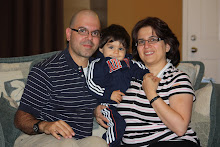
Digital pianos are electronic instruments that reproduce piano sounds. Unlike acoustic pianos, they have no hammers, no strings and no soundboard to produce the sound you hear. Instead, they have electronic sound chips and speakers. There are some nice advantages of using digital piano. Digital pianos usually have an array of features that make them an attractive alternative to an acoustic piano, such as, different types of piano sounds, other keyboard sounds like harpsichord, organ, other instrument sounds like strings, flute, percussion, built-in rhythm capabilities to accompany your playing, the ability to record your performance, the ability to interact with other electronic music devices (MIDI), never a need for tuning, headphones to practice in private, easier portability. But also there are some disadvantages about digital piano compare to analog piano. The problem with digital pianos is that they can't really duplicate the tone and touch of a real piano. Even with today's sampling technology individual notes may be quite accurately reproduced, but the tone of notes sounding together, as in an acoustic piano - with complex harmonics mixing and resonating against a flexible wooden soundboard - cannot be matched. As a result, most music sounds rather sterile played on a digital piano. Digital pianos don't feel like real pianos. Touch Sensitivity and Weighted Action is not the same thing as the sophisticated inner mechanism, or "action", of an acoustic piano. Digital pianos merely simulate the touch of pianos. They don't provide the same feedback or responsiveness to your playing, so your performance range is limited. If you are considering buying a piano for your child, consider this: many piano teachers will not teach students who have reached a certain level on anything other than an acoustic piano. Digital pianos are counter-productive when it comes to technique and dynamic performance. These skills cannot be practiced on a digital keyboard and then applied to a real piano action. It's not the same thing. A piano also represents a stronger commitment to a student, as an opposed to a digital keyboard that may represent the same thing to a child as a computer, an electronic game-station or a CD player. Something else to consider is that an acoustic piano will hold its value far better than a digital. An acoustic piano can last 100 years, while a digital may be obsolete in 5 years and might be hard to even give away by then.

No comments:
Post a Comment